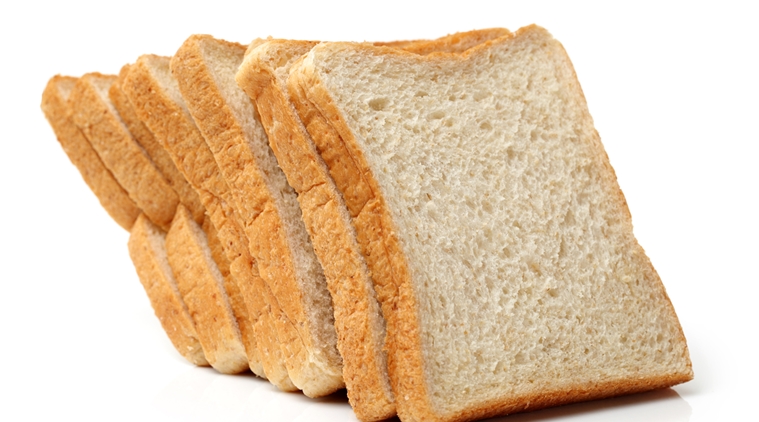On The Loose: The war on bread
Even before the CSE report came out, bread was the first food a dietician stuck off a meal plan. There may be something particularly comforting about the Indian packaged breads but baking your own might be a safer bet.
 Even if we forget the cancer for now, for anyone who’s even a little health conscious, bread has been a controversial food for a long time. (Source: Thinkstock Images)
Even if we forget the cancer for now, for anyone who’s even a little health conscious, bread has been a controversial food for a long time. (Source: Thinkstock Images)
Tests conducted by the Centre of Science and Environment indicate that India’s pre-packaged breads may have cancer-causing chemicals. According to reports in various newspapers, 84 per cent of the branded breads tested positive for potassium bromate and potassium iodate, two ingredients that have been banned in most countries but are permitted in India. The samples examined included pre-packaged breads, pizza bases and buns from fast food chains such as Mc Donald’s and KFC, and manufacturers such as Britannia and Harvest Gold.
Even if we forget the cancer for now, for anyone who’s even a little health conscious, bread has been a controversial food for a long time, best avoided because of its tendency to take up permanent residence on your backside. In the last few years, gluten, the protein present in bread has become the enemy, the cause of everything from an auto immune disorder to a range of allergies. With the result, bread is the first food a dietician strikes off a meal plan; replaced with the healthy but inevitably less tasty brown rice. There’s something particularly comforting about the Indian packaged breads: their sheer insipidness and ability to taste of nothing except what condiment you put on them. It’s pointlessly fluffy and bereft of goodness but a guaranteed fall back option to curb hunger since there are always a few forgotten slices lurking in the fridge.
Before there were bakeries everywhere in Delhi, most of us lived on bread sold in these plastic packs. We still do. What would school tiffins have, if not a cheese sandwich? I’m sure there are many mothers heaving a sigh of relief that this cancer suspicion has emerged in the summer holidays. In city living, bread is notoriously hard to avoid, being so very convenient.
Over centuries, poets and writers have written odes to bread and entire civilizations can chart their history through the varieties of dough. Metaphorically, bread is diligently earned and endlessly savoured: to be broken with friends in times of celebration and cheer, which makes the association with cancer especially shattering.
Recently, on one of my yearly clearing fits to toss out the obsolete items occupying my kitchen cupboards, I stumbled on my old bread maker. Some years back, in a valiant attempt to try not to eat anything from a packet, I had taken to baking my own bread. Predictably, after baking precisely 10 loaves (at the cost of Rs. 1,000 per loaf), the machine was shoved into a cupboard never to be retrieved again. However, it was a brilliant machine that even a five-year-old could use with foolproof instructions on measurements. It’s where I learnt what a racket brown bread is. In the home bread makers at least, it is not possible to bake a bread that tastes like bread, without white flour. Every brown bread recipe I tried involved copious amounts of flour, negating the low calorie effect. Still, baking your own loaf is therapeutic and the fragrance wafting through the house is nothing short of heavenly. And it’s easier than it sounds. If not the gluten, it can at least be carcinogen free.





- 01
- 02
- 03
- 04
- 05






















